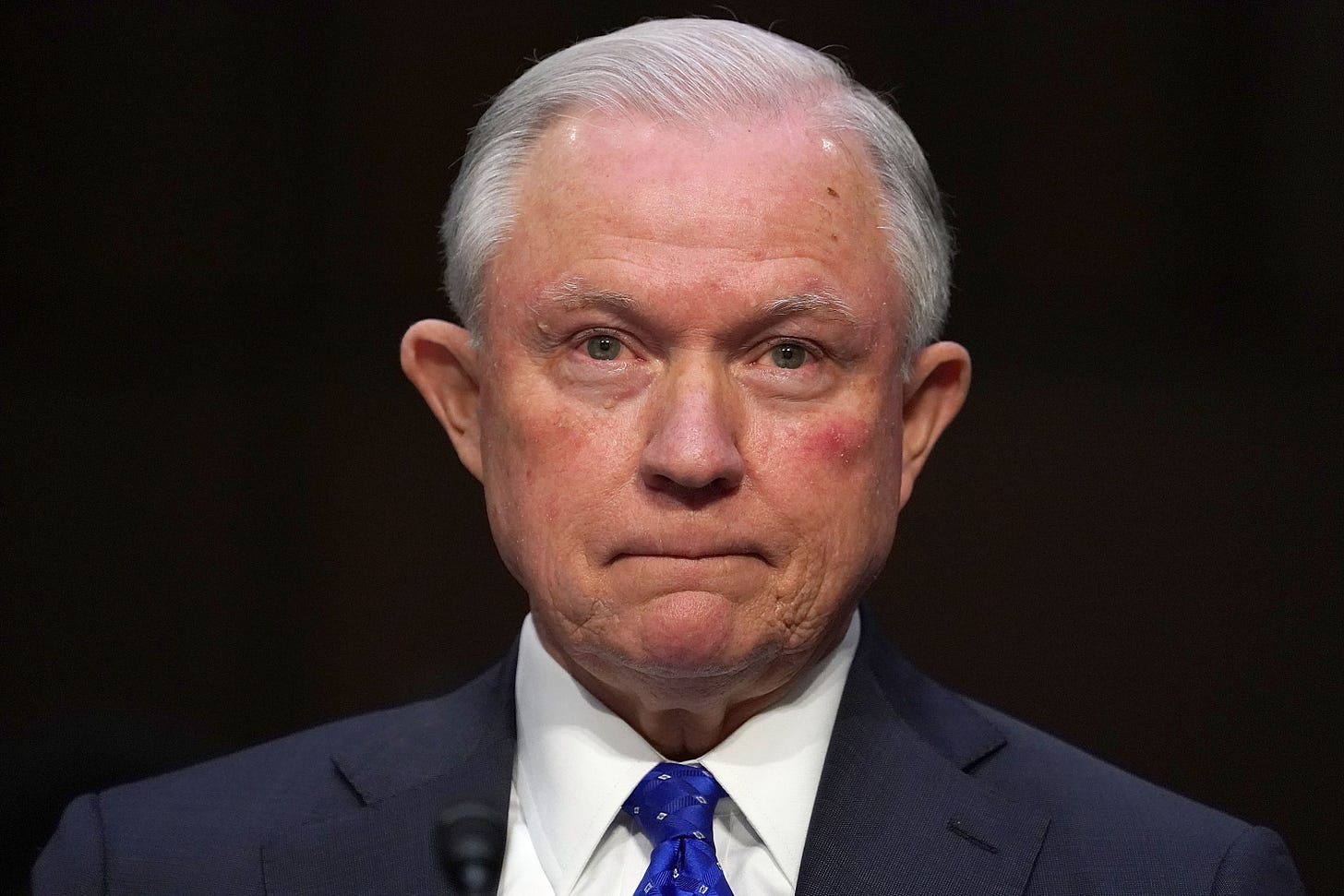Jeff Sessions Just Told Us Who He Is
The Senate candidate tells his version of the Obama beer summit story.
It’s not often that a man who has spent three and a half decades in public life opens a window into his truest self. But that’s what Jeff Sessions did in the course of a New York Times profile. Never has Maya Angelou’s famous dictum—“when someone shows you who they are, believe them”—had more force.
The former Alabama senator and U.S. attorney general, now struggling to win his old job back in the face of ridicule from his former boss, was praising his tenure in the Justice Department as a firm ally of the police, even as significant majorities of Americans, black and white, are coming to grips with the persistence of indefensible police conduct.
In contrasting his policies with those of ex-president Barack Obama, here’s what Sessions said:
The mantra was: “Back to the men and women in blue” . . . The police had been demoralized. There was all the Obama—there’s a riot, and he has a beer at the White House with some criminal, to listen to him. Wasn’t having a beer with the police officers. So we said, “We’re on your side. We’ve got your back, you got our thanks.”
What was Sessions talking about? What “criminal” did Obama have a beer with after what “riot”?
There’s an obvious answer here.
Sessions was “remembering”—make that seriously misrepresenting—an incident involving Henry Louis Gates, the Harvard professor and host of the PBS Series Finding Your Roots.
Back in 2009, Gates was arrested by a Cambridge police officer while trying to enter his own home. President Obama weighed in on the incident, saying that “the Cambridge police acted stupidly in arresting somebody when there was already proof that they were in their own home,” and added “there’s a long history in this country of African Americans and Latinos being stopped by law enforcement disproportionately.”
What followed was a “beer summit” at the White House with Obama, Gates, vice-president Biden, and the police officer from the incident—Cambridge police Sgt. Joe Crowley.
The “summit” was widely covered on TV and in the press.
The Times asked the Sessions campaign if this was the incident he was referencing to in his remarks. His office declined to elaborate. So permit me.
If you’re of a charitable disposition, you could chalk this up to a fading memory. “Cognitive decline” is the term now in vogue.
But I don’t think that’s the case.
What Sessions is reflecting is precisely the kind of instinct that leads police to arrest a black homeowner who calls for help because his home is being burglarized, or who stop a black motorist to ask how he can afford the luxury car he’s driving. It’s the kind of primitive categorizing that puts a racist filter over innumerable incidents on the streets, in schools, in stores.
Somewhere in Jeff Sessions’s brain is a mechanism for “framing” events with a racial or political cast:
Black guy gets arrested by white cop? The black guy is a “criminal.” There have been protests and some riots in response to the murder of George Floyd? So this “criminal” must have been part of a “riot.” Obama? Soft on black criminals, hostile to cops. Of course he’ll have a beer with the rioting criminal, while snubbing the police.
And how does someone with such a mindset become the chief law enforcement officer of the United States? Consider who appointed him: a president who retweets a video of a supporter shouting “white power” and who threatens to veto a defense appropriations bill because it seeks to rename military bases named for men who attacked the Union in defense of slavery.
More than 35 years ago, Sessions was denied a federal judgeship by the Republican-controlled Senate after a series of accusations of what we used to call “racial insensitivity.” Sessions’ supporters dismissed the charges as political correctness run amok.
It turns out we didn’t know the full story about Jeff Sessions’s views on race until he told us himself.


